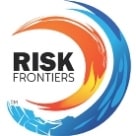Global Risks Report 2022
Ashley Avci & Andrew Gissing
The World Economic Forum has released its 17th edition of the Global Risks Report (GRR). Each year the GRR highlights key global risk perceptions derived from current economic, societal, environmental, and technological tensions.
The most severe perceived risks identified for the next ten years are environmental. Climate action failure ranks as the “number one long-term threat to the world” with the potential to cause the “most severe impacts over the next decade” followed by extreme weather, biodiversity loss and others. The perception of climate action failure as a risk has increased by 25%, whilst the perception of extreme weather has increased 23% since the start of the pandemic in 2020.

According to the report, the impacts of climate change and extreme weather are rapidly appearing in the form of fires, floods, droughts, extreme heat events, species loss, and other impacts. The COP 26 Conference succeeded in gaining countries to align to the Glasgow Climate Pact and other pledges, but even these new commitments are expected to miss the goal of 1.5 degrees Celsius. Governments, businesses and communities are under increasing pressure to act. Yet divergent trajectories globally will create barriers to cooperation with the report predicting that the transition to a low carbon economy will be disorderly.
Climate change and post-COVID recovery
While the initial onset of the pandemic brought about a lowering of greenhouse gas emissions, upward trajectories soon resumed. The economic hangover of the pandemic crisis and weakened social cohesion is likely to limit political and financial capacity for stronger climate action. aggravating ecosystem destruction, with the loss of arable land causing an increase in migration pressure and climate refugee numbers.
The report warns:
Countries continuing down the path of reliance on carbon-intensive sectors risk losing competitive advantage through a higher cost of carbon, reduced resilience, failure to keep up with technological innovation and limited leverage in trade agreements. Yet shifting away from carbon-intense industries, which currently employ millions of workers, will trigger economic volatility, deepen unemployment and increase societal and geopolitical tensions (pg. 8)
The GRR asserts that post-COVID-19 recovery measures mostly neglect the green transition in favour of short-term stability. However, while a slower and more orderly transition might be more manageable in the short term, it would result in the need for deeper and faster changes by 2050. Consequently, causing further complexities and long-term disorder, simultaneously amplified by more damaging economic activity e.g., closing off of opportunities and environmental degradation impacting societal well-being.
The full report can be downloaded at:
https://www.weforum.org/reports/global-risks-report-2022
Click here to download pdf version of this briefing note
